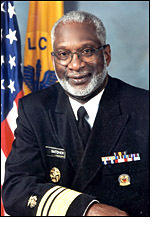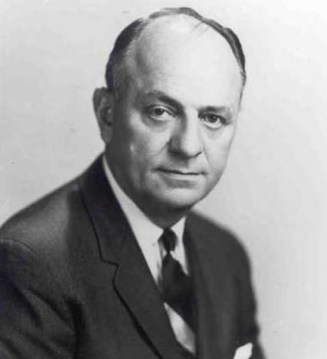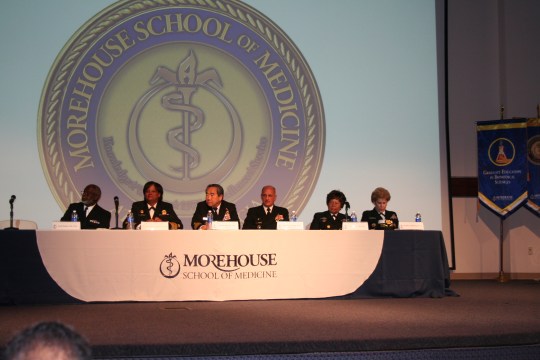January will mark the 50th anniversary of a seminal moment in public health.
That’s when the first U.S. Surgeon General’s report on smoking was released, focusing public awareness on the dangers of tobacco use.
Dr. David Satcher, who served as surgeon general from 1998 to 2002, spoke Thursday about the big change in attitudes toward tobacco over the past half-century. In 1964, he said, roughly 45 percent of Americans were smokers. Now that percentage is 20 percent.
“We’ve made a lot of progress,’’ Satcher said. “Public health is a long-distance run.’’
Satcher and five other former surgeons general gathered Thursday at Morehouse School of Medicine in Atlanta to discuss the job of being the nation’s doctor and their views on current health issues.
Dr. Luther Terry, the surgeon general in 1964, himself quit smoking while on the job, noted Satcher, who is director of the Satcher Health Leadership Institute at Morehouse.
Every surgeon general since then has issued a report on smoking, he said.
Satcher said that being a surgeon general is like running “in a relay race –- [you] keep passing the baton’’ to others holding the office.
Dr. Kenneth Moritsugu, who was acting surgeon general in 2006 and 2007, said that those holding the position “have a bully pulpit.’’
Surgeons general are the “credible, dependable voice of science,’’ he said, with a duty to make that science understandable to ordinary Americans.
Dr. Richard Carmona, who served from 2002 to 2006, added that surgeons general are “a unique fraternity.’’ The approach of those holding the job, he said, is to be “apolitical and unbiased,’’ no matter what the political stance of the president who nominated them. “It is an embattled position.’’
He noted that the 2006 report on secondhand smoke dangers helped spark smoking bans in many states.
Dr. Regina Benjamin, a Morehouse School of Medicine graduate who was surgeon general from 2009 until this summer, emphasized the importance of prevention, which she said “is key to building a stronger and more sustainable health care system.’’
Ninety percent of smokers start as teenagers, she noted.
Increasing the price of tobacco leads to declines in smoking rates, Benjamin said. She also stressed the importance of social media in getting public health messages out to Americans. “It’s important that we go where people are.’’
Dr. Joycelyn Elders discussed the importance of education in advancing public health.
Elders, who was pressured to resign in 1994 over her outspoken views on sexuality and drugs, noted the significant drop in teenage pregnancy that has occurred in the country.
She also cited the persistent problem of poverty. “We’ve got health care for the rich, sick care for the poor. . . . We still have a health-illiterate society.’’
The first female surgeon general, Dr. Antonia Novello, pointed out Thursday that the Affordable Care Act has recognized the problem of tobacco use by setting the insurance premiums much higher for smokers than for non-smokers.
While in office, Novello worked on issues such as the health of women, children and minorities, as well as on underage drinking, smoking, and AIDS. She also jousted with the tobacco industry over the use of the character “Joe Camel’’ in print advertising. She said the cartoon image made smoking look appealing to young people.
“You have to have an agenda’’ as a surgeon general, Novello told the Morehouse audience.
Elders, in her remarks Thursday, mentioned the importance of Surgeon General C. Everett Koop, who died this year. Koop, who served in the 1980s, issued a landmark report on HIV/AIDS. He also became a nationally recognized public figure, giving the office of surgeon general a new level of visibility.
Satcher, who during his tenure issued reports on mental illness, as well as on obesity and on oral health, said he is pleased that the Affordable Care Act elevates coverage for mental health and substance abuse treatment.
“The brain is part of the body,’’ he said.



